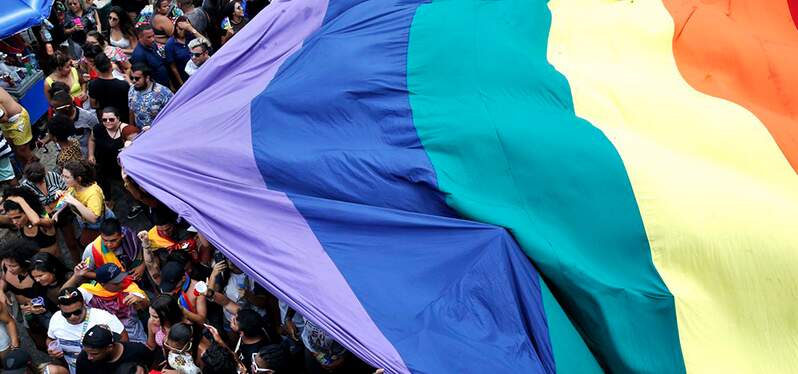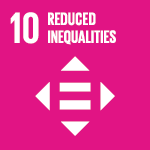Posted in: 03/25/2023
LGBTQIAP+ representativeness and recognition of the struggles for the rights of homosexual, bisexual, transvestite, transgender, queer, intersex, asexual and other genders and sexualities is what drives the National LGBTQIAP+ Pride Day, celebrated on March 25th .
Of the 207 million Brazilian men and women, 2.9 million people declare themselves LGBTQIAP+ , according to data from the National Health Survey (PNS), released by the Brazilian Institute of Geography and Statistics (IBGE), which considers people aged 18 or more. However, the IBGE points to the possibility of underreporting of research , due to factors such as prejudice and lack of familiarity with the terms used in the research.
Structural changes in society are needed to combat discrimination. The increase in LGBTQIAP+ protagonism in the political scene has been one of the factors that drive important changes. In 2022, 18 LGBTQIAP+ parliamentarians were elected to the Chamber and assemblies , twice as many as in the 2018 elections.
The number of candidacies was even more expressive, 317 people declared LGBTQIAP+ applied in the last election , compared to 157 in the 2018 elections, according to the NGO VoteLGBT+ .

With political participation, LGBTQIAP+ representation gains a voice to occupy spaces and present its causes. In addition, it may represent an advance in community-oriented agendas, such as proposals for the development of laws and decision-making. As done by Federal Deputy Erika Hilton , who proposed the creation of a Parliamentary Front for LGBTQIAP+ rights .
The purpose of the proposal created by the trans congresswoman is to increase her role in Congress and strengthen the fight for rights and equality . The proposal provides a way of repairing the impacts caused by inequality.
For effective changes in favor of equality and access to rights by the LGBTQIAP+ population to occur, it is important that public bodies are committed to combating discrimination . However, only 8 Brazilian states have plans or programs for the community , according to a survey carried out by the Athens Program .

For years, proposals and decision-making were made by people outside the community , a factor that impacts the way and speed in which these decisions are made. Therefore, LGBTQIAP+ representation in politics is so necessary.
In this way, the Secretariat for the Promotion and Defense of LGBTQIAP+ People was created , which will be led by Symmy Larrat, a trans woman. The folder aims to preserve the life and dignity of LGBTQIAP+ people .
In recent years, significant changes have positively impacted the life of the LGBTQIAP+ community, such as the decision of the Federal Supreme Court (STF) , in 2019, which criminalized LGBTphobia . The decision condemns acts of discrimination based on sexual orientation and gender identity.
The decision seeks to ensure justice to the LBGTQIAP+ community , which suffers from violent attacks across the country. In 2022 alone, 242 homicides of people declared LGBTQIAP+ were recorded , according to data from the Gay Group of Bahia (GGB).
The challenges are not few. Among them is the creation of a specific law that protects the LGBTQIAP+ community, as the decision taken in 2019 declares that cases of LGBTphobia are equivalent to crimes of racism and, for this reason, are judged by the Racism Law .

Another important change was the annulment of the rule that prohibited blood donation by men with same-sex relationships. The 2020 STF decision overturned a restriction applied by ANVISA and the Ministry of Health .
In addition, other important changes have been implemented in recent years, such as the recognition of stable same-sex relationships , declared in 2011 by the STF, which made homoparental adoption possible , in 2015, and the use of social names and recognition of gender identity, in 2016.
Participation in leadership and decision-making spaces can add to the development of public policies that guarantee access to public services, ensure dignity, justice and protection.

Sign up and receive our news.